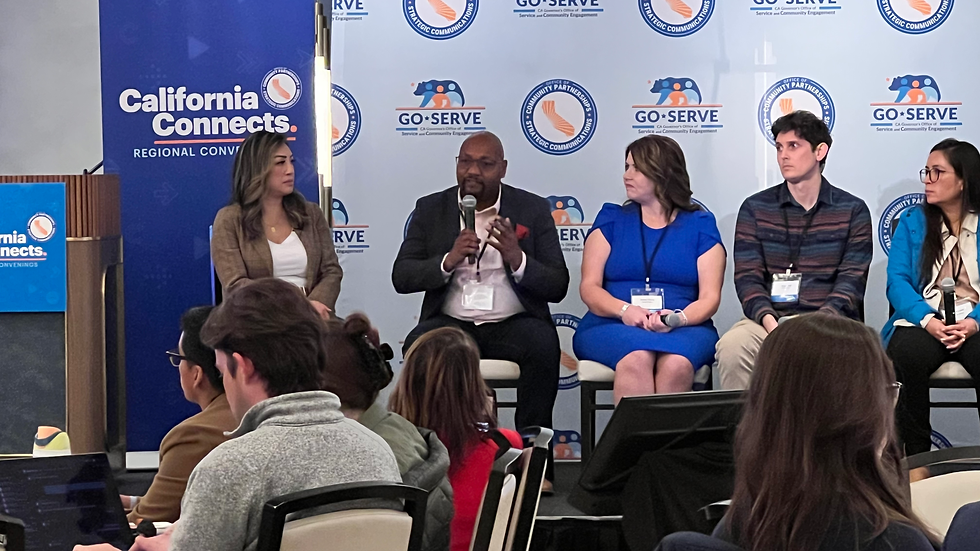Thousands of prison inmates are being released into local communities
- INFO-MD Staff

- Jan 24, 2018
- 4 min read

According to California Board of State and Community Corrections (BSCC) data, thousands of prisoners were released early into local communities as a result of the California Public Safety Realignment Act (AB 109) and related state laws including Propositions 47 and 57, which reduced various felonies to misdemeanors, decreased prosecutions of parole violations, and shifted 35,000 inmates to local county jails.
This caused significant overcrowding in the local jails, which were not equipped to handle the rehabilitation, medical, and mental health care of long-term inmates, forcing an early release of approximately 162,000 prisoners back into the community in 2013, 96,000 in 2014 after the passage of Proposition 47, and 72,000 in 2016 after the passage of Proposition 57.
Also, in Los Angeles County, which houses a quarter of California's jail population, male inmates are often released after serving as little as 10% of their sentences and female prisoners after 5%, and individuals arrested for parole violations are in many cases are released and never prosecuted. These efforts were projected to save California $1.5 billion by 2015-16. However, as a result of insufficient rehabilitation, medical and mental health treatment, and reentry efforts many of the prisoners released early recommit crimes and return to prison - and the state budget, number of prisoners, and incidents of crime and homelessness continued to grow.
According to FBI and U.S. Department of Justice data, Los Angeles saw double-digit percentage increases in violent crimes, and California's overall violent crime rate increased by 3.7%, according to a Public Policy Institute of California (PPIC) report. In June 2013, a few months after Dustin James Kinnear, 26, was released from prison and placed on community supervision under the realignment initiative, he stabbed to death a 23-year-old woman on the Hollywood Walk of Fame because she refused to give him a dollar. Ka Pasasouk shot and killed four people in Los Angeles County in December 2012 while on community supervision under the Realignment Act.
Further, during the realignment period, Los Angeles also saw an increase of 18,000 homeless individuals, according to Los Angeles Homeless Services Authority data. According to a comprehensive study for the county chief executive officer's homeless initiative, Los Angeles County spends close to $1 billion a year caring for and managing its homeless population. Equally concerning, the cost of incarcerating an adult in California has risen to $75,560 - and Los Angeles County spends more than $233,000 a year incarcerating a youth, according to a county audit. By comparison, the $233,000 would be more than enough to provide a non-incarcerated youth with private tutoring, food, housing, and health care - and upon graduation from high school, adequate funds to provide tuition, fees, room and board, transportation, and other related expenses for one year's attendance at California State University, Dominguez Hills. Lastly, unemployment among people of color also increased during the realignment period.
These laws were passed in response to the finding of the United States Supreme Court that California had violated inmates' Eighth Amendment constitutional rights, which protected them from cruel and unusual punishment, and the court ordered California to decrease the population of its state prison system. In addition, the court determined that overcrowding was the cause of inmates' inadequate medical and mental health care.
Alternative Solutions
California's prison system is a captive labor force of 118,000 men and women who are currently forced to work in prison operations or for public/private entities, in most cases for less than $1.00 an hour. The state could enact a social inclusion policy that pays inmates a minimum wage and requires qualified inmates to vote. Financially, California could issue tax-exempt state bonds and other tax incentives to fund the training, education, and healing of inmates so that when or if they are released, they can become productive, taxpaying citizens. This would also provide a way to offset the negative impact of the loss from Federal itemized state and local tax deductions in excess of $10,000. Also, whether you agree or disagree with the now legal status of recreational use of marijuana in California, why not release all the prisoners incarcerated for past convictions on marijuana possession charges and provide them with mandatory jobs, paid for by the up to 35-45% state and local taxes on marijuana? They could also appoint more prison advocates to the Board of State and Community Corrections. This is not to say that the Proposition 47 grants, in effect through 2020, are not appreciated; but it's just not enough, especially without corresponding public policy change and the billions the state will save as a result.
Proving this approach works, seventeen foundations and trusts, including the Rockefeller Foundation, invested $6.6 million through the Peterborough Social Impact Bond (SIB) to provide rehabilitation services for criminals released after serving their time at Peterborough Prison in the United Kingdom (UK). This effort not only produced a 3% return on the SIB investment, it decreased crime and its staggering associated costs, and reduced new convictions by an average of 9%. According to Robert Wilson, former Minister for Civil Society for the UK, due to the economic, social, and human returns on the Peterborough SIB investment, these types of investments could hit $1.3 billion by 2020.
The Legislative Latino and Black Caucuses should establish a legislative committee to study the social, economic, health, employment and criminal impacts of the Prison Realignment Act policies and devise new public policy that will systemically, institutionally, and financially respond to the finding of the U.S. Supreme Court, and reduce recidivism instead of shifting the problem from the state to the county to the community.
"Continue to remember those in prison as if you were together with them in prison, and those who are mistreated as if you yourselves were suffering." - Hebrews 13:3 (NIV)








Comments